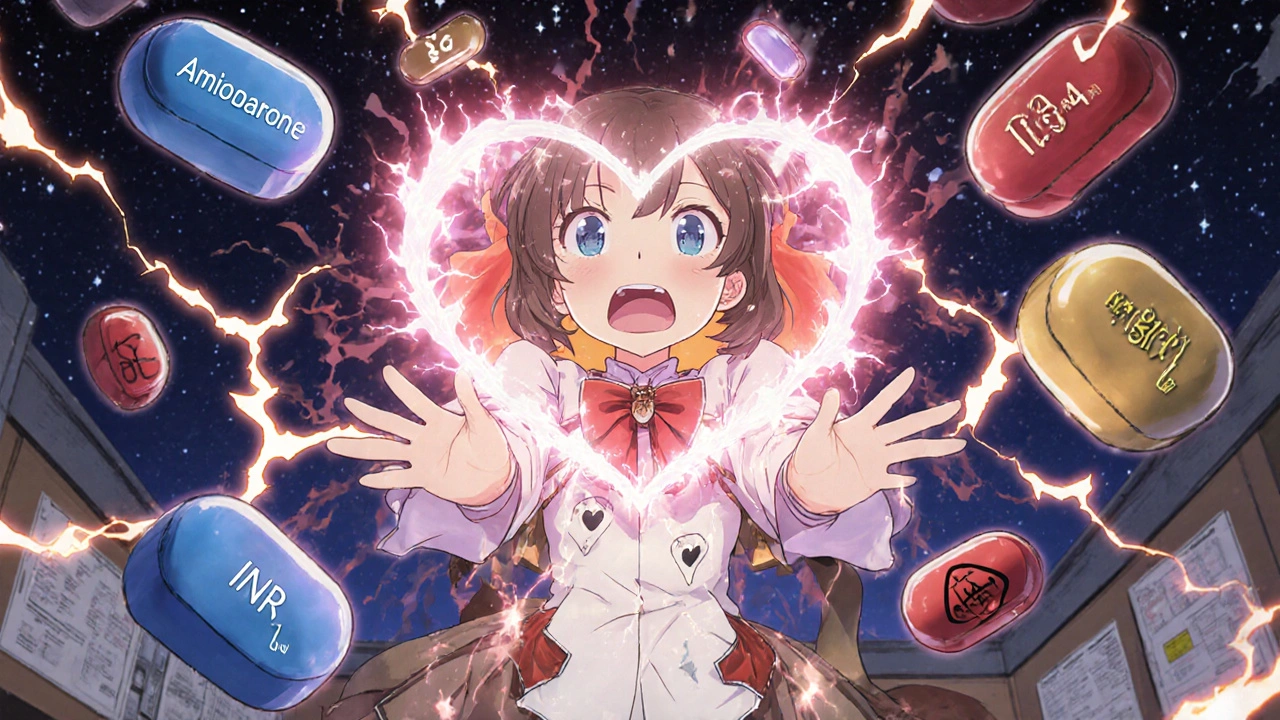Drug Interactions: What You Need to Know Before Taking Medications
When you take more than one medication, your body doesn’t always treat them like separate guests—it sees them as roommates who might fight. This is what we call a drug interaction, a reaction between two or more drugs that changes how they work in your body. Also known as medication interaction, it can make a drug stronger, weaker, or cause unexpected side effects you didn’t sign up for. These aren’t rare mistakes. One in five adults takes five or more medications, and many don’t realize their heart pill might be clashing with their acid reflux medicine or their supplement.
Drug interactions happen because your liver and kidneys are trying to process everything at once. Some drugs slow down how fast others break down, making them build up to dangerous levels. Others speed things up, so the medicine doesn’t last long enough to help. For example, famotidine, a common heartburn drug also sold as Pepcid, can affect how your body absorbs other pills. azathioprine, an immune-suppressing drug used for autoimmune conditions, raises your risk of blood clots when mixed with certain birth control pills or hormone therapies. And metformin, the go-to diabetes medication also known as Glycomet, can interact with contrast dyes used in imaging scans—something your doctor should know before you get an MRI or CT.
It’s not just pills. Supplements, herbal teas, even grapefruit juice can throw off your meds. Cholestyramine, used for cholesterol, can grab other drugs like a sponge and stop them from working. And if you’re using something like permethrin for lice or imiquimod for skin lesions, those topical treatments can still affect how other drugs behave in your system. That’s why medical alert bracelets with QR codes are becoming essential—they give emergency teams instant access to your full drug list when you can’t speak for yourself.
Knowing your own meds is the first step. Write them down. Include dosages and why you take them. Bring that list to every appointment—even the dentist. Ask your pharmacist: "Could this interact with anything else I’m taking?" Don’t assume your doctor knows every supplement you buy online. And if you start feeling weird after adding a new pill, don’t wait. That nausea, dizziness, or strange heartbeat might not be normal.
Below, you’ll find real, practical guides that break down exactly how these interactions play out. From how antidepressants affect your liver to why mixing certain painkillers with blood thinners can be risky, these posts give you the facts without the fluff. No jargon. No guesswork. Just what you need to stay safe and in control of your health.



